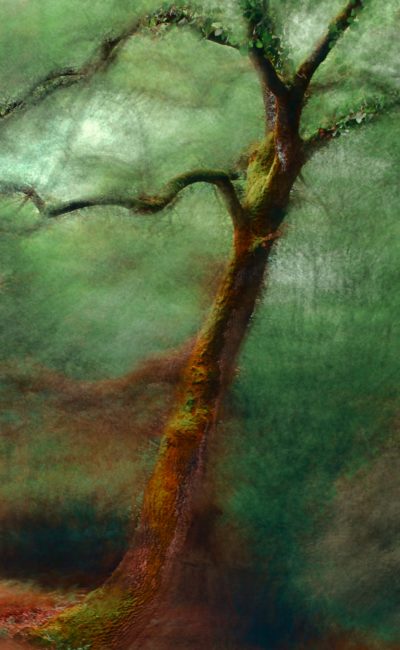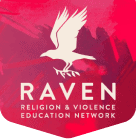The Cost of Narrowing God’s Love
“And now may you accept life as a gift, and live life as a way of giving thanks.”
It is hard to accept life as a gift when you live in fear.
Fear comes from an imperfect understanding or experience of love, for perfect love casts out fear. God is all-encompassing Love, but exclusive claims on God’s love have distorted God’s image. Fear is the flip side of arrogance, which claims God’s love at the expense of others.
The narrowing of God’s love, which happens when faith is misinterpreted and weaponized, has devastating personal, cultural, and global consequences.
Internalizing a narrow cultural interpretation of Christianity once caused me to live in the isolation of anxiety.
Perpetuating a weaponized Christianity has brought death and destruction to people and our planet.
Yet the gentle instruction of this benediction, to accept life as a gift and live in thanksgiving, continually echoes in my heart. Over time, these words, and the model of my beloved college chaplain who spoke them, have transformed my vision and cultivated gratitude that has changed my life.
And I believe that if our culture transformed our vision, a collective gratitude could change the world.
To live in gratitude is to recognize the love poured into all of creation and reflect that love. It is to respect and nurture the delicate balance in which all people, as well as all of nature, are made to bless one another. It is to cultivate a familial relationship with everything in creation.
Indigenous cultures throughout the world live out this gratitude as stewards of creation. Throughout the world, indigenous people are at the forefront of protecting biodiversity, caring for the gifts of creation that they may last from generation to generation.
Hope for a dying world depends on broadening an exclusive understanding of Love to include all creation, and then living into that love. We cannot do this without listening to indigenous voices.
Living out of gratitude transforms us.
Discovering the Gift of Gratitude
Recognition of the power of gratitude in my own life gives me faith in its healing power for the world.
I went to college at a time in my faith journey when my heart was ripe for cultivating a deeper understanding of God’s love than I had ever known. Anxious, confused, and longing for belonging, I had sought God across religious traditions and practices. I had converted to Islam at 16 because it made more intellectual sense to me than the Christianity in which I was raised (and to which I would later return). Still, my understanding of God’s love was narrow. I thought I had to get religion “right” in order to be “saved,” and continued to doubt and fear.
My college chaplain was uniquely equipped to broaden my understanding of God’s love. A Christian raised among Muslims in the Middle East, she saw the beauty of both traditions, and her life reflected her conviction that God’s love embraces all humanity.
Her model helped me to see life as a gift from the generous, all-merciful Creator. Before I could articulate it, I started feeling loved and living out of the gratitude that came from that feeling.
Living out of gratitude is transformational. There is a sense of relief that comes from recognizing that what we most desire – love – is already given, without our need to strive or change or adhere to any difficult beliefs. There is a humility that reorients our self-understanding from autonomous to communal when we recognize that the foundation of all that we have – life itself – is a generous gift from the Creator shaped by all creation. And there is a deep joy in remembering the goodness we are given that stimulates our desire to harness that good for others.
When we live life as a way of giving thanks, we nurture and extend hope. We become kinder, more patient, and more determined to ensure that others can enjoy the blessings for which we are grateful.
I was blessed to have my view of God’s love expanded to include all humanity. But God’s love doesn’t end with humanity. It encompasses all creation.
God Beyond Empire: Shalom, The Harmony Way, and God’s Many Covenants
And again, this is where indigenous wisdom can restore a broken world to the balance in which it was created, the balance we humans are meant to maintain as stewards.
It is a tragedy that the Christianity that found its way to the shores of what became known as North America was fueled by an exclusive understanding of God’s favor that expressed itself in violent conquest and colonialism.
Those of us without tribal history can never fully comprehend the continuing devastation and loss from massacres, forced removal, stolen land, broken treaties, and forced shipping of children to boarding schools in order to “kill the Indian but save the man.” All while being systematically dehumanized and told that salvation could only come through a God who required them to forsake their history and identity.

So indigenous people who affirm Jesus do so because they recognize in his message their own truth. That truth is God’s abundant love for all creation reflected in all creation. Not only is this truth not limited to Christianity, but it has been obscured by the weaponization of Christianity.
In Shalom and the Community of Creation, Cherokee author Randy Woodley explains that for all the many tribes of North America that he surveyed, he found commonly held principles lived out in worship and gratitude to the one Creator who speaks to each and all of us. Collectively, he refers to these principles as “The Harmony Way,” and acknowledges their parallel to the way of “shalom” depicted in the Hebrew Bible and incarnate in Jesus.
“Shalom” is commonly understood as “peace,” but its meaning greatly overflows the limits of that word. It is the balance in which each part of creation is intended to bless the whole, reflected in the blessing of Abraham to be a blessing to all nations. To live into and maintain shalom is to care for the marginalized, treat the land with respect and tenderness, live in responsibility to all living things, and trust in the abundance of the Creator’s manifold generosity.
A necessary component of “shalom,” therefore, is being open to its expression across language and culture. The many indigenous practices to which Woodley refers in the expression “The Harmony Way” are simply shalom – the will of the Creator – lived out by other peoples in other lands.
The fact that indigenous people from around the world have cultivated values similar to those laid out in the Hebrew Bible – with practices for caring for the land as well as one-another – shows us that God doesn’t dictate rules to one people to be spread across the world through imperialism. Rather, God creates all humanity with the desire and inclination toward harmony and gives us the tools to nurture it. This is part of our intrinsic interconnection, a connection that can lead to conflict but also to communion with one-another and with all creation.
The Olive
Branch
Take A Breath with Us
Our weekly newsletter creates a space to take a breath. Once we slow down, we can see the way desire, imitation, and conflict operate in our lives and in the world, and begin to create peace. In addition to the newsletter, you will receive the free "Unlearn the Bible" ebook when you subscribe.
Three Healing Truths from an Indigenous Lens
Wisdom lived out among indigenous peoples around the world illuminate truths Jesus, and the prophets before him, taught and lived that have been obscured by a violent understanding of Christianity. Here are three truths that can heal broken humanity and a broken planet.
- God creates covenants with all peoples, and integral to those covenants is the stewardship of the land. Woodley points out that, in Amos 9:7, God answers the assumption that there is but one covenant people by claiming that he also forged a covenant with all peoples. That covenant includes universal values, but is also particular to location. For God’s covenant with us is a promise for our well-being as we live in caring connection to the world. It is a promise that the trees and plants and animals will nurture us if we care for them. It is a promise that we will find joy and love and fulfillment if we care for each other. And that requires being present to what is around us, observing and listening. Naturally, different environments would require different interactions. Thus, different nations have different covenants. Everything in creation belongs to a branch of God’s extended family. Living in loving relationship with all creation is living in gratitude to the Creator.
- In every culture, the extent to which people worship God in deed beyond word is, as Woodley explains, “tested on the margins of a society and revealed by how the poor, oppressed, disempowered, and needy are treated.” While the Hebrew scriptures and Jesus taught this truth, its reaffirmation across space, time, language and culture reinforce its significance. The Harmony Way teaches that injustice and exploitation – the hoarding of “peace” and well-being for the few – diminishes life for all. The peace and balance God desires for all requires repairing relationships with those who have been dehumanized, whose divine image has gone unrecognized.
- Listening to indigenous wisdom can heal the world. Recognizing the intimate relationship between people and land, understanding that our treatment of each other is inextricably tied to our treatment of the earth, indigenous people have long understood that faith can only be expressed in compassionate relationship with all creation. The Bible uses marriage as a metaphor for the relationship between people and land, and, as Woodley says, “The current marital status between modern humanity and the land is similar to a state of divorce. What we need in order to reconcile the marriage is a marriage counselor. And that is the role that indigenous people can play in this serious breach.” Reconciliation with the earth is nothing less than reclaiming our role as stewards of creation and enhancing, rather than diminishing, the world with our care. Indigenous cultures have shown that it can be done, and can teach us before it’s too late.
From Exclusive Salvation to Universal Restoration

Hope overflows as I let indigenous wisdom open me to a new life in gratitude and responsibility for all creation. It is a lifelong journey of listening and learning.
The fear that once narrowed my understanding of God’s love was born out of a cultural misinterpretation of Christianity. On a national and international scale, setting limits on God’s love has torn the world apart through dehumanization, war, and exploitation.
Hope lies in reorienting ourselves away from exclusive salvation and rivalrous notions of God toward a sense of familial connection with creation. This is shalom, the Harmony Way, the intention of the One who fashioned us out of the same stuff as the stars and soil: Love. To live out our vocation as embodiments of Love, we must listen to all voices, particularly those of indigenous people within our own lands
whose history encompasses not only marginalization, but a model of stewardship. In humble gratitude we may find our true place by listening to those who once were told that they did not belong.
My beloved chaplain’s words return to me again. Her signature benediction, which first oriented me toward acknowledging that I was loved and living in gratitude, continues with the reminder that shalom, the Harmony Way, is God’s universal desire. Where I first saw her words reaching across all humanity, I now see them encompassing the whole of creation.
“Go in peace, for God’s holy name goes with us all.”

